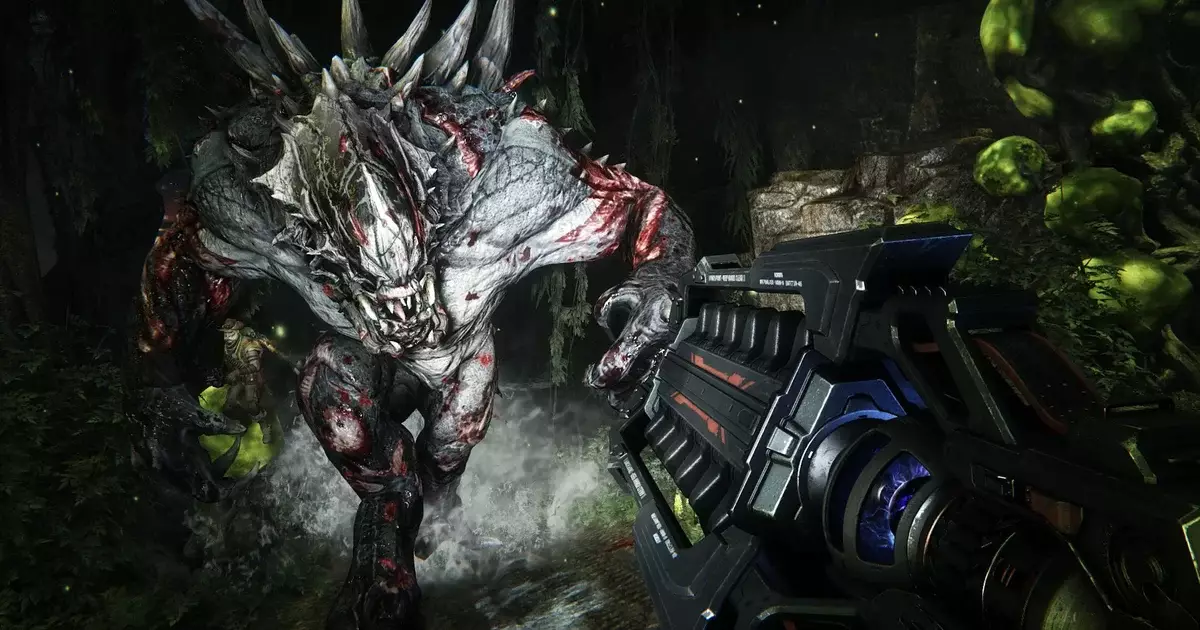Evolve, developed by Turtle Rock Studios, was an ambitious experiment in the realm of multiplayer gaming—a genre where innovation often clashes with monetization strategies. At its core, Evolve promised a thrilling cat-and-mouse dynamic: one colossal and agile monster against four specialized hunters. Visually striking and mechanically unique, it had all the ingredients for an iconic multiplayer experience. As the Wraith, a creature capable of warping and sneaking, I felt a rush of excitement darting across the map, hunting or being hunted in tense, high-stakes encounters. Yet, beneath this veneer of innovation lay an undercurrent of frustration. The game bogged down in grindy progression, with a relentless barrage of unlocks tied to microtransactions, which undermined the essence of fun and discovery.
Evolve’s initial promise was rooted in its asymmetrical gameplay—a departure from conventional shooter formulas. The thrill of orchestrating or thwarting a predator’s plan kept players hooked during launch. However, this excitement was ultimately compromised by a design philosophy that prioritized monetization over player experience. The early grind felt artificially inflated, intended to push players towards paid DLC, which reduced the game’s appeal and kept many players at arm’s length. The delisting of Evolve in 2018, mere years after its debut, underscored the failure of a live-service model that failed to sustain long-term engagement without endless financial injections.
The Unrealized Sequel and Its Hints of Brilliance
Despite its rocky launch and subsequent decline, Evolve’s universe and mechanics divulged tantalizing glimpses of what could have been. Concept art and pre-production material reveal that Turtle Rock Studios envisioned a sequel—one that might have set the franchise on a new course free from some of the pitfalls that marred its first outing. The canceled Evolve 2, as described by senior concept artist TJ Frame, showcased a more varied and perhaps more linear mission structure, including locations like a sprawling asteroid mining station dubbed “The Akhenaten.” This facility, with its sense of scale and alien architecture, evokes the haunting corridors of Dead Space’s USG Ishimura, stirring a nostalgic longing for atmospheric horror.
The concept art hints at a universe rich in detail—alien landscapes, mechanical monstrosities, and environments ripe for narrative development. Frame’s description of themes involving “nasty insect biting” and “liquefying prey” suggests a dark, visceral tone that could have elevated Evolve’s monster hunting from a merely competitive experience into a horror-infused saga. Unfortunately, these ideas remained stranded in pre-production limbo, victims of shifting priorities and the studio’s pivot to other projects like Back 4 Blood—a game burdened by its own grind-heavy mechanics.
The Somber Reality of Development and Lost Opportunities
The disappearance of Evolve’s sequel plan symbolizes the larger tragedy—what might have been had the franchise been given more room to breathe and evolve without the constraints of monetization. While the first game introduced compelling gameplay, its economic model ultimately doomed it to obsolescence. Turtle Rock’s transition to Back 4 Blood, and later acquisition by Tencent in 2021, suggest that the studio’s priorities shifted further away from innovative IPs towards mainstream, scalable projects. These business decisions underscore a harsh reality: great ideas can be sacrificed on the altar of profitability and market trends.
It’s easy to feel nostalgic and mourn the potential of Evolve, especially when driven by its striking art and ambitious design concepts. The canceled sequel’s art hints at a universe where horror and science fiction collide, and where predatory creatures could terrorize the environment in more meaningful ways. Yet, the fact remains that the game’s legacy is tinged with what-ifs—unfinished visions and aborted dreams of a franchise that could have stretched its wings beyond the limitations of its initial release.
The Unfulfilled Promise and Lingering Legacy
What lingers after the closure of Evolve’s official servers is a sense of lost opportunity—a demonstration of how mismanaged monetization strategies can overshadow genuine innovation. Despite its downfall, the game’s core mechanics still inspire curiosity and longing among aficionados who appreciated its potential. It’s heartening to see communities rally around spiritual successors like the reanimated Aliens Vs Predator multiplayer servers, proving that even failures can seed new life and hope for adaptation.
In the end, Evolve’s story serves as a cautionary tale: that true innovation requires a delicate balance between creative ambition and sustainable development. Turtle Rock had the blueprint for something revolutionary, but it was entangled in the pitfalls of modern live-service design. The canceled sequel stands as a testament to what might have been—an unfulfilled chapter in the evolution of multiplayer horror that future developers could learn from and perhaps, one day, revive.

